Discover Lifeworlds
Lifeworlds

Lifeworlds
Author: Alexa Firmenich
Subscribed: 57Played: 1,134Subscribe
Share
© Alexa Firmenich
Description
A podcast series that explores how to orient your life around nature. We discover the mindsets, skills and actions that are required to partner wisely with other forms of life and engage in acts of brilliant restoration.
Join me on this intimate journey into the eyes and minds of other species; learn how our guests are living in deep relationship with ecologies; be electrified by expanding your field of reality, and let these stories spark your reconnection to nature’s multiverse.
By restoring our relationship with nature, and learning what it is to be nature, we begin to restore ourselves.
Hosted on Acast. See acast.com/privacy for more information.
73 Episodes
Reverse
This Lifeworlds episode is a devotional journey into the work of Rainer Maria Rilke, the lyrical German poet of thresholds and embracing transformations.Through readings of his most luminous poems and writings, we explore how Rilke guides us deliciously in reconciling suffering and turmoil with tremendous beauty. It’s an offering for anyone standing in the in-between, for those moving through sublimation, and longing for those secret, dazzling encounters with primal life forces. Rilke’s words are an invitation in. To move towards. His poems are prayers…. “to go out into our hearts as onto a vast plain, so that life can feel us as it reaches for us.” Hosted on Acast. See acast.com/privacy for more information.
In this episode, we explore the role of theatre and empathy in transforming worldviews. Dr. Dylan McGarry is one of the founders of Empatheatre, a South African theatre-making company and methodology that turns research and storytelling into living social sculpture. Their plays create what they call amphitheatres for empathy - spaces where art, ritual, and dialogue help people listen across difference, from mining conflicts to ocean governance to human-wildlife coexistence.Empatheatre’s productions have brought together communities, policymakers, and activists that rarely meet, showing how imagination can transform civic life. The process of creating the plays generates profound potentials for restorative justice. As Dylan says, empathy is not about agreement, but about creating a vessel strong enough to hold our differences while keeping us in relation.We will cover:Empathy as a creative actTheatre and storytelling as Trojan horses that open conversations that traditional politics often can’tHow to design spaces that allow lifeworlds to touch and the practices that help us shift into another’s perspectiveHow empathy, when practiced collectively, becomes a form of governance: a new infrastructure for democracy and careEpisode websiteLinks:Share your input for the whale productionEmpatheatreDylan’s PHD5min Empatheatre docIndlela Yokuphila: The Soul's Journey (ZULU) film & the radio play used in the court caseLalela Ulwandle TrailerUmkhosi Wenala doc about Zulu musical on indigenous traditions & animist relationshipsSteiner’s 12 sensesMOTHProject CETIKaren BakkerUndrowned: Black Feminist Lessons from Marine MammalsOne Ocean Hubdylanmcgarry.orgInstagram: @dylan_mcgarryPhoto Credit: Casey Pratt. It captures a significant moment in a collaborative theatre-making & storytelling project titled "Umkhosi Wenala" Hosted on Acast. See acast.com/privacy for more information.
In this episode, I sit down with Bill Plotkin, founder of Animas Valley Institute. Over the past 40 years, Bill has developed intricate, nature-based models of human development and education that challenge dominant psychological frameworks and invite us into a maturation process rooted in wholeness, wildness, and the more-than-human world.We explore their three major maps of a person’s “soul-centric journey” and cover topics including:Why most modern humans remain developmentally stuck in early adolescenceThe 8-stage Soulcentric Developmental Wheel and how it mirrors nature’s rhythmsThe four cardinal facets of the psyche, and the inner protectors that distort themWhether other species undergo their own versions of soul initiationWhy the path to a mature culture will not come from the strategic mind, but from descent, mystery, and imaginationThis is a deep-dive into a body of work that’s revolutionizing the lives of thousands of people, and how to think about adulthood, education, and healthy human cultures.Episode Website LinkLinks:Animas Valley InstituteAnimas Valley OfferingsSoulcraft: Crossing into the Mysteries of Nature and PsycheNature and the Human Soul: Cultivating Wholeness and Community in a Fragmented WorldWild Mind: A Field Guide to the Human PsycheThe Journey of Soul Initiation: A Field Guide for Visionaries, Evolutionaries, and RevolutionariesParable of the TribesLook out for meditations, poems, readings, and other snippets of inspiration in between episodes.Music: Electric Ethnicity by Igor Dvorkin, Duncan Pittock & Ellie KiddPhoto Credit: Midjourney Hosted on Acast. See acast.com/privacy for more information.
Almost 40% of Earth’s land is degraded, meaning that the natural cycles that sustain biodiversity, water, food, and livelihoods are breaking down. This degradation is an ecological crisis, and, it also lies at the root of massive social breakdown, displacement, and conflict. And it’s accelerating.In this episode, I speak with Dutch ecologist and entrepreneur Willem Ferwerda, founder of Commonland, one of the leading global initiatives tackling land degradation via large-scale holistic landscape restoration. Their work spans over 20 countries, with projects restoring millions of hectares from South Africa to Spain, Australia to the Netherlands. We get into their unique 4 Returns Framework - a powerful, intuitive model that integrates ecological, social, financial, and inspirational/spiritual returns.We talk about:Communities building long-term visions together across sectorsThe importance of meeting different audiences where they areThe role of storytelling, spirituality, and local leadershipHow restoring land helps restore meaning and purposeAnd how, ultimately, all this work is about regenerating lifeEpisode Website LinkShow links:The 4 Returns Framework in Practice4 Returns Framework Publication4 Returns Framework for Landscape Restoration4 Returns Diagnostic ToolThe Meaning of Laudato Si for a Landscape EthicTowards financing large-scale holistic landscape restoration in EuropeThe Trillion-Dollar Promise Of A Landscape Restoration Industry, ForbesWe must tackle global risks in an integrated way – here’s howHow the Ecosystem Approach supports “Cooperation in a Fragmented World"Albania landscape projectLook out for meditations, poems and readings in between episodes.Music: Electric Ethnicity by Igor Dvorkin, Duncan Pittock & Ellie KiddPhoto Credit: Commonland Hosted on Acast. See acast.com/privacy for more information.
Today we’re joined by artist, musician and communal grief ritual facilitator Alexandra “ahlay” Blakey to speak about the cultural forgetting of communal mourning, the sacred role of professional mourners, and the re-emergence of grief ceremonies as necessary spaces of remembrance, healing and repair.Ahlay brings her experience weaving song, body, and ritual into collective spaces where grief is given breath and movement, and we explore the history of grief practices across cultures, the political power of public mourning, and how grief can soften the heart and stitch community back together. We explore what to expect in a communal grief ceremony, and ahlay shares the story behind her 200-voice album WAILS: Songs for Grief, inspired by whales, ancestral sorrow, and Francis Weller’s work. Within the episode are woven tracks of her haunting songs, so tune up your headphones, and sink in.Episode Website LinkShow Links:Healing at the Roots: ahlay’s websiteSong: Carry this AllThe Sacred Role of Eastern European Professional MournersSobonfu SomeWAILS: Songs For GriefOne Body Song Circle LiveFrancis WellerBook: Dangerous VoicesBook: Caliban and the WitchMartin PrechtelMyth of Lindworm: Martin ShawBandcampYoutube ChannelSpotifySoundcloudInstagramLook out for meditations, poems, readings, and other snippets of inspiration in between episodes.Music: Electric Ethnicity by Igor Dvorkin, Duncan Pittock & Ellie KiddPhoto Credit: Cover image (Earth Altering) Hosted on Acast. See acast.com/privacy for more information.
In this episode we’re joined by the renowned environmentalist, activist and author Paul Hawken to explore the lifeworld of carbon and its role as a vital agent in the story of life.Paul speaks about the dysfunctions in Western language on how we speak about climate and nature, and why metaphors of war, control, and fixing actually perpetuate the very mindset that created the crises in the first place. We explore common traps we fall into, and how to recarbonize, to bring life back and restore relationality in how we think, feel, and act.This is a wide-ranging and intimate conversation on language, grief, science, reverence, and what it means to come home to Earth and to the deeper meanings of life.Episode Website LinkShow Links:Carbon, the Book of life (Paul’s book)Drawdown (Website & Paul’s book)Regeneration (website resources with projects)Regeneration (Paul’s book)Francis Weller Course on griefClosing Poem: Love in a Time of Climate Change By Craig Santos PerezLook out for meditations, poems, readings, and other snippets of inspiration in between episodes.Music: Electric Ethnicity by Igor Dvorkin, Duncan Pittock & Ellie Kidd Hosted on Acast. See acast.com/privacy for more information.
In this episode, we journey into the vibrational worlds of sound, ancestry, and deep listening with Whaia, a Ngāti Kahungunu woman of Māori descent and First Nations sonic weaver and multi-instrumentalist.Raised between the salt of the Pacific and the red dust of the Australian desert, Whaia’s voice carries ancient songlines, blending traditional Māori instruments, crystalline singing bowls, and her original mother tongue, the language of Te Rā, the Sun. We explore her work singing with whales, reclaiming cultural instruments once left silent in museums, and remembering the sacred oceanic highways navigated by her Polynesian ancestors, guided by the stars and whale ancestors.This is a conversation about song as medicine, the voice as ceremony, and reclaiming lineage through sound. We ask: what might the whales be singing to us now? What frequencies are we called to remember in order to heal ourselves and our waters?Stay on after the episode wraps to hear a special feature from Whaia’s debut album WHAIA & WATER — the first of a twelve-part series known as her Sacred Sonic Sessions.Episode Website LinkShow Links:Whaia websiteInstagramWhaia Water Album DownloadWisdom Keepers DelegationOceanic GlobalAustralian SonglinesThe PleiadesMasaru Emoto: Messages in WaterLook out for meditations, poems, readings, and other snippets of inspiration in between episodes.Music: Electric Ethnicity by Igor Dvorkin, Duncan Pittock & Ellie KiddPhoto of Whaia: Chanel Baran Photo Hosted on Acast. See acast.com/privacy for more information.
In a remote cabin in Vancouver Island in 2019, far away, I sat by the shore. I listened. I re-read poetry. I swam with jellyfish. I ate bright salmon berries and raw samphire. I gazed around and listened to the songs of the land. This piece of writing is a result of my days there. Full poem on Lifeworlds Website Hosted on Acast. See acast.com/privacy for more information.
Where does your body end and the Earth begin? In this episode, we explore the real and poetic parallels between human health and planetary health, and how nature’s language moves in our bodies. Joining me is Dr. Mackenzie Hall, a doctor of Traditional Chinese Medicine and Functional Medicine, who helps us trace the Earth’s vital systems through the lens of humans as ecological systems.We ask:How could one imagine the Earth’s vital organs as reflected in human anatomy?How does the Earth balance and health and detoxify, and how might this mirror how we work with our own bodies? How does the body's energetic system hold, manage and deal with pathology? How do we listen for the Earth’s pulse?How could this affect how we work as earth protectors and regenerators? This brings up a profound point: if we are to ensure the Earth’s aliveness, we have to feel it as our own body. And, if we can sense the Earth’s rhythms as our own, can we also become its white blood cells, human agents of healing embracing and embodying its circulatory wildness?Episode Website Link: https://www.lifeworld.earth/episodes-blog/theecologyofhealthShow Links:Aaro WellnessThe Web that has no Weaver"Understanding Chronic Illness"Alexa’s Article: Our Planet’s BloodEarth’s Frequencies: Schumann ResonancesYellow Emperor's Classic (Classical text upon which all Chinese Medicine is based)Biocubes.net: Infographic on living and human biomass on earthMeditation: The Cosmos in Your FoodMusic: Electric Ethnicity by Igor Dvorkin, Duncan Pittock, Ellie Kidd & The Rising by Tryad CCPL. Hosted on Acast. See acast.com/privacy for more information.
David McConville is a transdisciplinary artist and researcher who explores how technology shapes our perspectives of Earth—from local places to our cosmic context. Our conversation examines how worldviews influence infrastructure, using Los Angeles as a case study. We explore the paradigm of "living infrastructure," discussing how David's studio Spherical collaborates with communities and organizations to develop mapping and co-design tools. Even if you’re not in LA, this episode offers valuable insights into how communities can work together to create resilient infrastructure systems that honor their unique cultural needs and local environments.Links:SphericalSpherical LabsLiving Infrastructure Field KitDawn Danby + David McConville : When Utopia is OblivionBio:David McConville is co-founder and lead cosmographer of Spherical, a strategic design and integrative research studio based in xučyun / Oakland, CA. His PhD in Art and Media from Plymouth University examined how cosmological perspectives shape cultural imaginaries and ecological practices.Look out for meditations, poems, readings, and other snippets of inspiration in between episodes.Music: Electric Ethnicity by Igor Dvorkin, Duncan Pittock & Ellie Kidd Hosted on Acast. See acast.com/privacy for more information.
In this episode, I share some reflections on Season 2, before diving into our first listener-guided Q&A! You’ll be hearing from fellow listeners who enquired on topics like: Earth-centered governance De-extinction Alternative economies Language and stories about nature Which lifeworld I’d inhabit Green tech and individual agencyWhat is the purpose of humans?Thank you to everyone who sent in these thought-provoking questions.Episode WebsiteLifeworlds resource pageFaith in NatureEarth Law CenterZoopsTreaty of Finsbury ParkAlexa's When We Carved SpiralsIan McGilchristColossalBritt WrayVenemous LumpsuckerMultitudes FoundationPlanetary BoundariesRegeneration.orgDrawdownFlock TogetherGood NatureForest BathingLast Child AliveRegeneratorsBio LeadershipCapital InstituteDanielle Rees: dannivrees@gmail.comSmall GiantsBerksharesKenya Sarafu CreditGrassroot Economics Hosted on Acast. See acast.com/privacy for more information.
What if you could inhabit the future? In this episode, we dive into the work of Superflux, the visionary design studio turning imagination into tangible worlds. From multispecies banquets and rewilded ecological sanctuaries to mythic friezes that re-enchant cityscapes, co-founder Anab Jain shares how embodied experiences can transform how we see — and shape — the world. Join us as we explore speculative design, active hope, and the power of imagination to move us beyond ecological breakdown and into interspecies thriving. A celebration of wonder, possibility, and the art of asking: "What if?" Episode Website LinkShow Links:Superflux websiteThe Quiet EnchantingCalling for a more than human politicsDesignweek on speculative designAnab Jain’s IXDA Keynote on More-Than-Human Centred DesignNoema Magazine: Radical Design for a World in Crisis9 Dimensions for evaluating how art and creative practice stimulate societal transformationsRecent Interviews: Financial Times, ICON, Wallpaper, Offscreen Magazine, STIRworld, Business Insider, NPR RadioTo send your Q&A to Alexa for the Lifeworlds special episode Look out for meditations, poems, readings, and other snippets of inspiration in between episodes.Music: Electric Ethnicity by Igor Dvorkin, Duncan Pittock & Ellie Kidd Hosted on Acast. See acast.com/privacy for more information.
This is my take on ancient and intuitive sensory experience that taps into the innate intelligence of the human body, a blend of body compass, Zen Beginner's Mind, a shamanic medicine walk and Goethean science. The practice asks you to find a place in the natural landscape where you could walk undisturbed for some time, and have an encounter with an element of nature. A true act of lifeworld-ing! I guide you through a short introduction and the instructions. Attached on the website page is a link to the full instructions in PDF, and listed here in much briefer bullets below. I recommend listening in full, then using either of the instructions when you choose to do the practice itself. Abbreviated instructions · Before entering into the natural landscape, you’ll walk to a threshold place, and stop.· Here you will physically draw a threshold that you will walk across.· Once you’ve done that, pause, connect with the land, speak your intention, ask for permission.· Cross the threshold, and start walking towards where you feel a tug. Be conscious of the way your body can intuitively lead the way. Use the senses. · At some point, you may come across a being in the land that catches your attention. It could be a spiders web, a stone, a patch of moss, a dead bough of a tree, a stream, a blade of grass, truly anything. Approach, introduce yourself.· Spend a moment in presence with them, in beginners mind. · Use Goethe’s Exact Sense Perception instructions –then imagine it transforming. Then release to receive. Let it communicate back to you. · Stay here as long as feels right. · When it comes to the time to go, thank this natural being and start walking back to your threshold place. · When you cross the threshold, thank the land and when you’re ready, step across back into the other world. · Gently wipe out the threshold door and take some time upon returning to digest anything that may have arisen for you. Hosted on Acast. See acast.com/privacy for more information.
Throughout history, many cultures have observed and interpreted animal behavior to predict events and read the landscapes around them. The multispecies lives of our planet weave an astonishing network of information across the face of the globe, a web of knowledge compromised of thousands of creatures communicating with each other, across species, and with their environments. How we listen in on this collective intelligence? Today’s guest Martin Wikelski is director of the Max Planck Institute of Animal Behavior and the International Cooperation for Animal Research Using Space (ICARUS) - a project which has been dubbed as ‘the internet of animals’. Their team has created a global ecological monitoring system, attaching remote sensing chips to thousands of animals in the wild, in effect uncovering and translating, as Martin says, ‘the collective intelligence of life on earth’. By tuning in to the communication and culture of animals, the project his project reveals the planet's hidden workings with enormous implications for conservation, global finance, and human infrastructure. We explore many of these forward-thinking ideas in this episode, adding another layer to Lifeworlds’ ongoing question: How do we sense the planetary and see through the perspectives of other life?Episode Website Link Show Links:Internet of Animals BookArticle: The Internet of Animals: what it is, what it could beBirdcast: Showcasing the spectacle of bird migrationMovebankWhalesafeGlobal Biodiversity Information Facility (GBIF)Lifeworlds: BioacousticsLifeworlds: SatellitesInterspecies InternetEarth Species ProjectWill Hawkes: Insect Migration Look out for meditations, poems, readings, and other snippets of inspiration in between episodes.Music: Electric Ethnicity by Igor Dvorkin, Duncan Pittock & Ellie Kidd Hosted on Acast. See acast.com/privacy for more information.
Could the destruction of nature become considered as serious a crime as that of genocide? How does the structure of law shape a civilisation’s norms, behaviors and overarching story?Today we’ll be discussing international Ecocide law, a massively growing movement that wants to embed the notion of ‘ecocide’ crime at the highest levels of law - at the International Criminal Court in The Hague - and create a powerful deterrent for the further damage to ecosystems and people globally. Our guest is Pella Thiel, a maverick ecologist, farmer, author and who has co-founded the Swedish hubs of international networks like Transition Sweden, End Ecocide Sweden and is an associate of the Centre for Environment and Development Studies at Uppsala University. Pella was awarded the Swedish Martin Luther King Award in 2023 and the Environmental Hero of the year 2019. We discuss: Why ecocide law is different & a game changer as compared with other environmental laws How it can help create a new moral baseline, shifting global values and mindsets Where the tensions or synergies might lie between the Rights of Nature and Ecocide law The notion of positive tipping points And how an Embassy of the Baltic Sea might play out as a practice center for ecological community building Episode Website Link Show Links:Stop Ecocide International : Breaking News page End Ecocide Sweden Pella Thiel personal website Nate Hagens interview with Pella ThielLifeworlds Resource Page: Ecocentric Law Lifeworlds Episode on Rights of Nature MA Earth Interview with Jojo Mehta (Director of Stop Ecocide) Positive Tipping Points Embassy of the North Sea The Ecopsychology Initiative Look out for meditations, poems, readings, and other snippets of inspiration in between episodes.Music: Electric Ethnicity by Igor Dvorkin, Duncan Pittock & Ellie Kidd Photo credit: Law Statue Hosted on Acast. See acast.com/privacy for more information.
Have you ever wondered what it would be like to breathe yourself into your own body? To flow with the out-breath of trees into your own fractaling lungs, to dance ribbonlike into an ancient ceiba’s vasculature, to stitch an ecosystem together as a mycelium highways sparkling with energy? In this episode we explore the transformational potential of virtual reality through the work of Marshmallow Laser Feast, an artist collective that has emerged as a leading VR creators in the last decade. They exhibited internationally from London to New York, Melbourne to Seoul, their work included in major exhibitions at institutions including the Barbican Centre, Saatchi Gallery, Sundance Film Festival, and SXSW. 'In The Eyes Of The Animal' was nominated for the Design of the Year by Design Museum Beazley Awards and won the Wired Innovation Award (2016). Most recently, the team at MLF won the Tribeca Film Festival Storyscapes Award for Innovation in Storytelling and Best VR Film at VR Arles Festival for ‘TreeHugger, Wawona’. Ersin Han Ersin is the director of MLF and describes to us how they use dazzlingly aesthetic real-time VR experiences to explore the invisible perspectives of nature’s lifeworlds – and how they are constantly pushing the bounds of what technology makes possible in expanding our ecological sensitivities. I enquire into:Who they need to speak to in order to create their masterpieces and translate the umwelts of other species? What other scientists, poets, musicians, make this possible?What is it that virtual reality can create that no other medium can?What is the building block of a multisensory story?What are some of the astounding ways that other beings experience the world that are divergent from the human?How could global education be redesigned based on kinesthetic educative tools like VR?Episode Website Link.Show Links:Marshmallow Laser FeastTED talkVimeo of MLFSoulful connection with trees: DartingtonLifeworlds Episode with Karen BakkerObservations on Being by MLFAI piece from Berggruen InstituteAbandon Normal Devices FestivalLook out for meditations, poems, readings, and other snippets of inspiration in between episodes.Music: Electric Ethnicity by Igor Dvorkin, Duncan Pittock & Ellie KiddPhoto credit: MLF exhibition at AMCI in Australia (photo from their website) Hosted on Acast. See acast.com/privacy for more information.
Today’s episode brings us into the heart and philosophy of Zen Buddhism, as practiced by the Plum Village monastic community that was founded in 1982 by the Vietnamese peace activist, monk, poet, and teacher Thich Nhat Hanh. Today it has grown into Europe’s largest Buddhist monastery, with over 200 resident monks and nuns, and known as one of the most actively engaged Buddhist communities offering insight on the modern world, and on the climate and ecological crises.We’ve spoken on the show about fragmented consciousness, a mind that sees parts and not the whole. Meditation and other Buddhist practices are one of the core ways of how we can heal minds and views. And so we will hear from two Plum Village monks: Sister True Dedication and Brother Spirit. Before entering the monastery, Sister True Dedication studied History & Political Thought at Cambridge University and worked as a journalist for BBC News. In the early years of her monastic training, she assisted Thich Nhat Hanh in their engaged Buddhist actions for human rights, religious freedom, applied ethics, and ecology. Brother Spirit began his monastic training in Plum Village in 2008, and before ordaining he studied mathematics at Cambridge and worked professionally as a composer, and as such has since composed many of the community’s beloved chants. They both helped to found the international Wake Up Movement, a community of young meditators finding new ways to combine mindfulness and engaged Buddhism.We talk about:the fragmentation of consciousnesshow to hold the perspective of non duality and interbeing within unlikely contexts, and how doing so grants us agency and transformationdehumanization, de animation, and what Buddhism teaches about our relationship to other life and other intelligencesthe Mayahana Diamond Sutra (the world’s earliest printed text) and its invitation for us to reconsider four key notions of existancehow to find and make peace with one’s activismthe seeds of wisdom that lie dormant in 4000-year-old magnolia treeshow to hold the suffering of the world and call upon our ancestors for supportspiritual bypassing, instrumentalising, and get out of jail free cardsEpisode Website LinkShow Links:Plum VillageAbout Thich Nhat HanhZen and the Art of Saving the PlanetThay's Poetry / Please Call Me by My True Names (song & poem)Lifeworlds Meditation on Food inspired by Plum VillageMahamudra: Dr Dan BrownHope in the Dark: Rebecca SolnitGlobal OptimismLook out for meditations, poems, readings, and other snippets of inspiration in between episodes.Music: Electric Ethnicity by Igor Dvorkin, Duncan Pittock & Ellie Kidd Photo credit: Plum Village website Hosted on Acast. See acast.com/privacy for more information.
Woven together loosely by my narrative, this special episode traces through a selection of five dazzling poems from the Pulitzer-prize winning poet Mary Oliver; bringing us into giddy relationship with the natural world -- with geese and grasshoppers and miracles and scars and existential queries on what makes life worth living. Mary's sharp and gentle perception of nature, her ability to communicate its messages with such simple and profound language, is at once both balm and flame for the soul. “Poetry is a life-cherishing force. For poems are not words, after all, but fires for the cold, ropes let down to the lost, something as necessary as bread in the pockets of the hungry.” – Mary Oliver Hosted on Acast. See acast.com/privacy for more information.
Are plants conscious? Do they experience forms of cognition and intelligence that go beyond patterned and hard-wired evolutionary behaviors? Do intelligence and consciousness really require a brain and central nervous system? Or should we consider intelligence on Earth to be less brain-bound, perhaps not even residing in the individual self, but rather in an enmeshment within an ecosystem? A swarm intelligence, a networked mind, distributed, adaptive, like a murmuration of starlings in the setting sun. And how would we even begin to start answering these questions empirically?Today it is my explicit intention to change the way that you think about the kingdom of plants and the intelligence that resides within it. This is a controversial topic with scientists on all sides of the spectrum vehemently advocating for or against concepts.It was Darwin who first introduced to the Western world the concept of the "root brain" hypothesis, where the tips of plant roots act in some ways like a brain, a distributed intelligence network. They challenge our very notions of an individual. Plants exhibit qualities that are adaptive, flexible, and goal directed – all hallmarks of an intelligence that goes beyond hard wired impulsive responses. They make decisions, perform predictive modeling, share nutrients and recognize kin. Electrical and chemical signalling systems have been identified in plants very similar to those found in the nervous systems of animals, including neurotransmitters like dopamine and melatonin.Our guest today is Paco Calvo, a professor at the University of Murcia in Spain, where he leads the Minimal Intelligence Lab focusing on the study of minimal cognition in plants. He combines insights from biology, philosophy, and cognitive science to explore plant behavior, decision-making, and problem-solving, challenging conventional perspectives of his field. Paco has said that ‘to ‘know thyself’, one has to think well beyond oneself, or even one’s species. We are only one small part of a kaleidoscopic variety of ways of being alive.Episode Website LinkShow Links:MINT labPlanta Sapiens bookTime Lapse Video of vines and plantsMichael Pollan NYTInternational Laboratory of Plant NeurobiologyENG - intelligent-trees - The DocumentaryMonica Gagliano**TED talk** Stefano Mancuso The roots of plant intelligenceScientific American - "Do Plants Think?Look out for meditations, poems, readings, and other snippets of inspiration in between episodes.Music: Electric Ethnicity by Igor Dvorkin, Duncan Pittock & Ellie Kidd Hosted on Acast. See acast.com/privacy for more information.
Soulfire Sessions have come to Lifeworlds! These occasional special episodes will be our take on the good old concept of a fireside chat. Intimate, philosophical, challenging, sometimes zany, always insightful, these are discussions with visionaries who don’t often get the airtime to speak about their deeper ways of being and feeling – and what lights their souls on fire.In this first session I speak with my dear friend Daniel Schmachtenberger, a social philosopher and founding director of the Civilisation Research Institute. Daniel has a particular interest in the topics of catastrophic and existential risk, artificial intelligence, civilization and institutional decay and collapse as well as progress, collective action problems, social organization theories, and the relevant domains in philosophy and science.With the fire roaring, we delve into the psychological and metaphysical underpinnings of the metacrisis, traversing topics such as fragmented consciousness, Daoism, wholeness, feeling in service to thinking, dharma enquiries, conflict theory, and what it might mean to live a meaningful life.Links:Daniel's website: civilizationemerging.comDharma InquiryDaniel on how to live a meaningful life Civilization Research InstituteBohm and Krishnamurti conversationsMusic: Electric Ethnicity by Igor Dvorkin, Duncan Pittock & Ellie Kidd Hosted on Acast. See acast.com/privacy for more information.


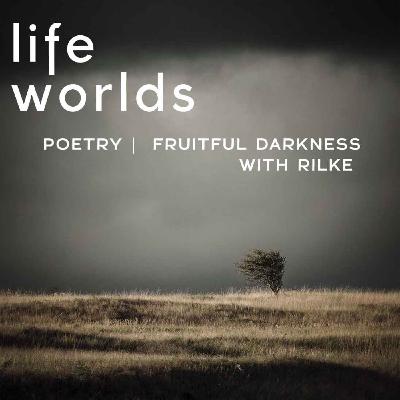
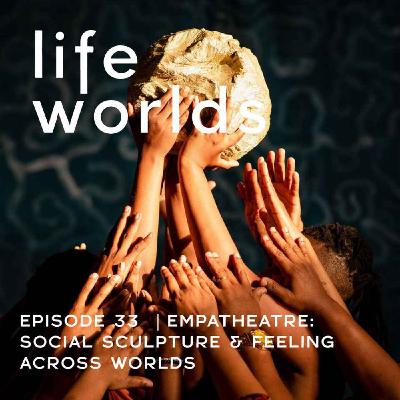

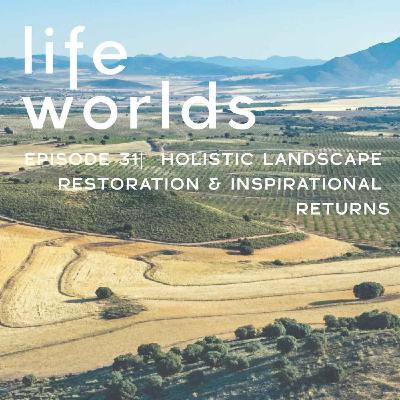
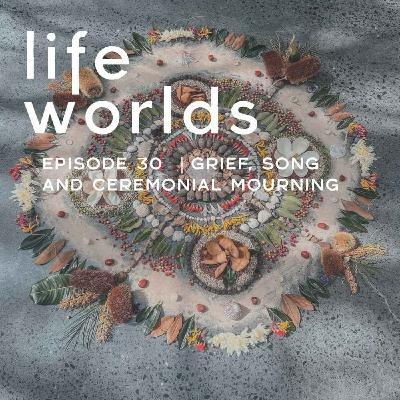


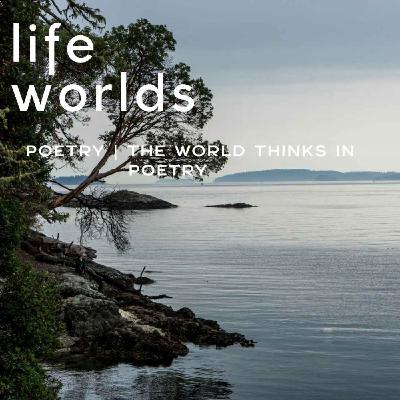

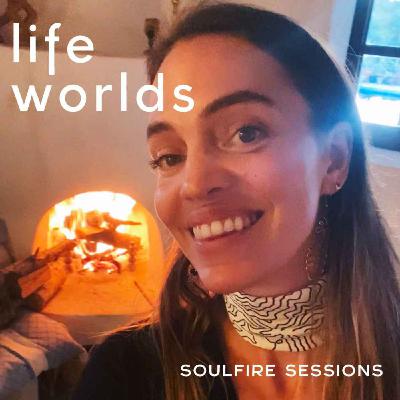

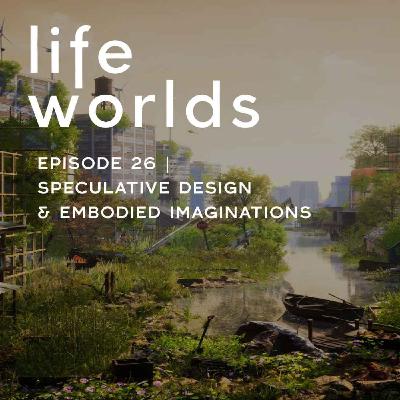











I never heard two fairys doing a podcast before. Trippy and awesome 🤣
What a great guest!! Awesome episode!
Excellent episode!
I loved this episode. Fantastic guest!
Great guest! I really liked this episode
Fantastic podcast! Keep up the good work 😃